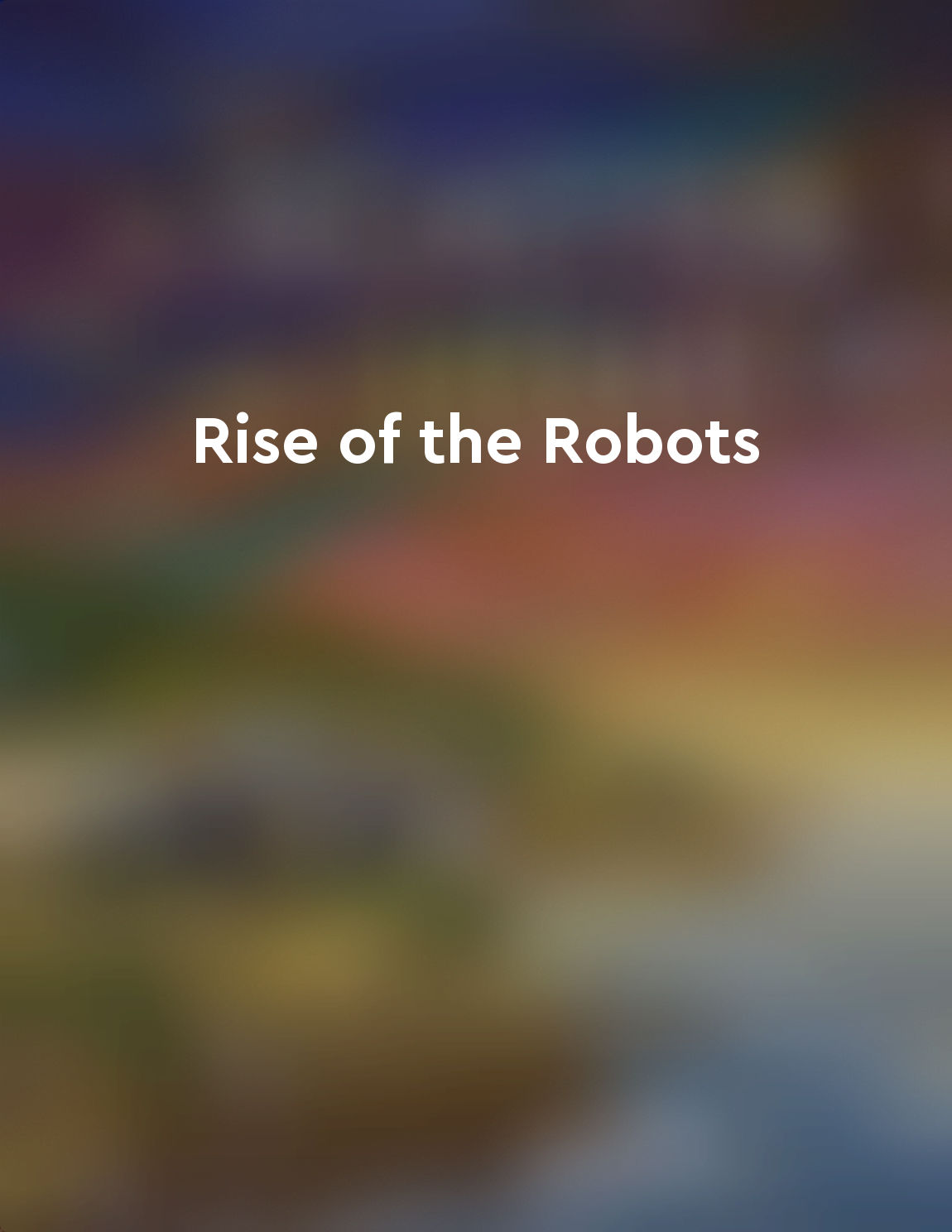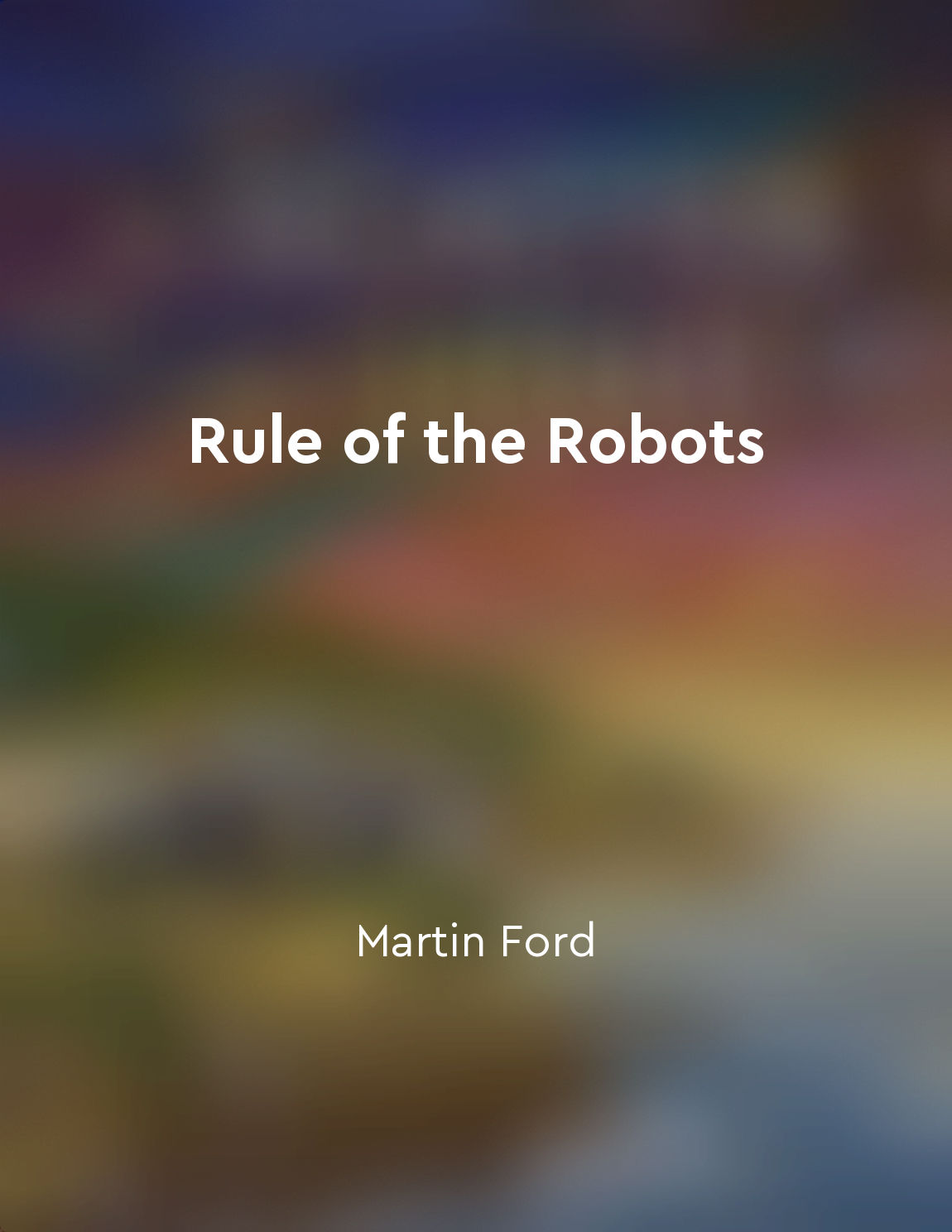Automation is not limited to bluecollar jobs; it is affecting white-collar professions as well from "summary" of Rise of the Robots by
In the past, when people spoke of automation, they often associated it with the manufacturing sector. The image of robots on assembly lines replacing human workers was the typical narrative. However, as technology continues to advance at an exponential rate, automation is seeping into other industries beyond just blue-collar jobs. White-collar professions, once thought to be safe from the threat of automation, are now facing the reality that their jobs are also at risk. Tasks that were once considered the domain of highly educated professionals, such as lawyers, doctors, and accountants, are now being automated by algorithms and artificial intelligence. For example, in the legal field, software programs can now analyze documents and contracts much faster and more accurately than any human lawyer. This means that tasks that used to require hours of painstaking review can now be done in a fraction of the time, and with greater precision. Similarly, in the medical field, AI systems are being developed to assist doctors in diagnosing illnesses and recommending treatment plans. These systems can process vast amounts of data and research much quicker than any human doctor, leading to more accurate diagnoses and better patient outcomes. Even in the financial sector, algorithms are being used to make investment decisions and manage portfolios. These algorithms can analyze market trends and data in real-time, making split-second decisions that can mean the difference between profit and loss. As automation continues to evolve and improve, white-collar workers will need to adapt and re-skill to stay relevant in a rapidly changing job market. The idea that certain professions are immune to automation is no longer valid, and those who fail to recognize this reality may find themselves left behind in the rise of the robots.Similar Posts

AI is reshaping the way we live and work
John Markoff explores the profound impact of artificial intelligence on our lives and work in "Machines of Loving Grace." He de...
Societal impacts of automation are significant
The impact of automation on society cannot be underestimated. It is a force that is reshaping our world in profound ways, touch...

Machines are capable of learning
In the world of artificial intelligence, there is a fundamental shift taking place. It is a transformation that is redefining t...
AI development necessitates ethical guidelines
In designing AI, we are essentially creating new forms of life, with the ability to think, feel and act. Just as we have ethica...
Machine intelligence can revolutionize education and learning
The application of machine intelligence in education has the potential to transform the way we teach and learn. By leveraging t...
Informed public discourse is essential
In a world where automation is becoming increasingly prevalent, the importance of informed public discourse cannot be overstate...
Reskilling and upskilling are imperative for displaced workers
As technology continues to advance at a rapid pace, many workers find themselves displaced by machines and automation. The skil...
Innovation is the key to staying ahead of the curve
Innovation is the lifeblood of any successful organization. It is the driving force behind progress and growth, enabling compan...

Workers must acquire new skills to remain competitive in an increasingly automated world
As technology continues to advance at a rapid pace, the traditional roles of workers are being increasingly threatened by autom...

Automation has the potential to improve efficiency and productivity
In a world where automation is becoming increasingly prevalent, one cannot overlook the potential benefits it can bring to busi...
